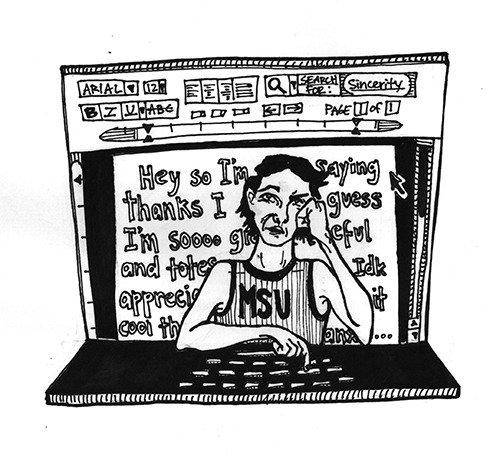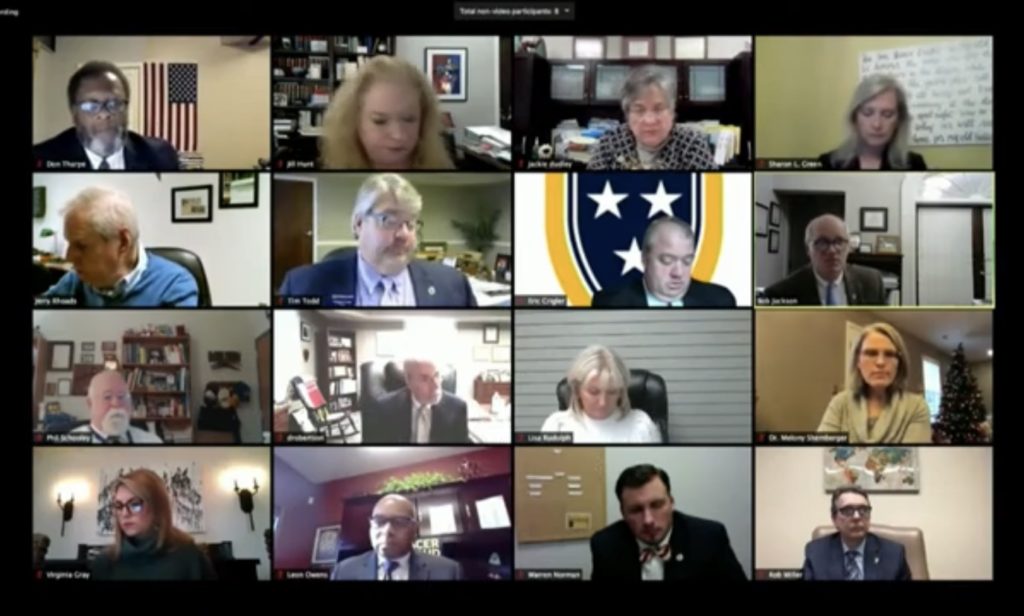The staff editorial is the majority opinion of The Murray State News Editorial Board.

Many students rely on scholarships in order to afford college. Thanks to the generosity of benefactors and foundations, we can go to school at a far-reduced and sometimes free rate. For that, we are gracious.
However, the way the University is handling our gratitude seems out of hand.
Those who received scholarships are required to write thank- you letters to their benefactors. A thank-you letter must be written for each scholarship, so some are required to write multiple.
If the letter was not submitted by the Nov. 10 deadline, that student had a hold placed on their MyGate account.
We feel that handling gratitude in this way makes it seem forced. While we are thankful for our scholarships, the importance placed on these letters is too high. On Murray State’s website, there are extensive guidelines as to how to write the letters.
These guidelines limit what we are allowed to say in our letters. If the letter does not meet all the guidelines on format, they will be sent back to the student for revision. With such strict rules, the benefactor will likely read hundreds of letters that say roughly the same thing.
How rewarding can that possibly be? We are also unsure if the benefactors directly read our letters. Some scholarship benefactors are no longer living, so who do our letters go to?
These rules, along with a short deadline, means some students will be revising their letters beyond the due date. A hold on an account can keep a student from registering for classes or viewing their transcript.
The point of scholarships is to ensure students have the means to pursue higher education. Putting a hold on our account because of a thank-you letter is in conflict with this idea.
Scholarship thank-you letters are a yearly requirement, which means benefactors, if they read our letters at all, have read very similar letters to the year before. There isn’t anything interesting about reading a letter about our future plans for two or three years in a row.
While it is probably gratifying for a benefactor to know they are helping a student attend college, they would likely appreciate our thanks if they were more genuine and personal.
When the University makes thank you letters a requirement, they take away the personal value and graciousness that gives a “thank-you letter” its name.


































































































